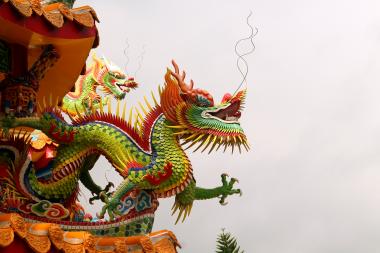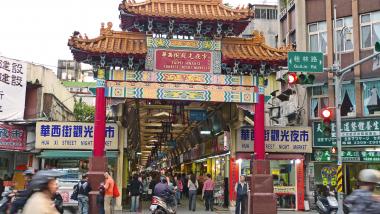TAIWAN'S TEXTILE INDUSTRY SUSTAINS ITS POSITION WITH INNOVATIONS
- Manufacturers rely, among others, on German Machines
Tokyo (GTAI) - When it comes to functional textiles, Taiwan belongs to the international top league. To ensure that this remains the case, industry manufacturers invest in modern equipment and innovations.
Taiwan is an important global supplier of functional textiles. The sector wants to maintain this position and expand it as much as possible. They are therefore investing in new capacities, research and development. There are good sales opportunities for suppliers of pre-products and equipment.
The demand for functional textiles is increasing in the sports, leisure and footwear industries. In other sectors, such as the automotive and medical industries, building materials and agricultural aids, these are also increasingly being used. Functional textiles are usually not recognizable as Taiwan products. Nevertheless, some of them are very visible.
For example, at least 15 out of 32 teams at the 2018 FIFA World Cup wore clothing made with textiles of Taiwanese origin for internationally renowned brand names, according to the Taiwan Industrial Development Bureau (IDB). According to the Taiwan Footwear Manufacturers Association, Taiwanese manufacturers are responsible for approximately 80 percent of all sports shoes produced worldwide.
Textile manufacturers invest
Far Eastern New Century (FENC) is one of the largest textile manufacturers on the island. Its production capacity is nowadays mainly located abroad with productions in China, Japan, the USA and Vietnam. FENC is also expanding its capacity in Taiwan. Polyester spunbonded nonwovens have been produced for the Asian market in a joint venture with Freudenberg in Germany since 1987.
Freudenberg Far Eastern Spunweb has announced that it will set up a third production line for nonwovens at the Tayuan plant, thereby increasing the existing production of 20,000 tons by 11,000 tons per year. Construction of the new production facility, which is scheduled to start operations in 2020, has now begun. The latest automated production technology is to be used. According to the company, the investments amount will approximately be at USD 43 million.
| Company | 2016 | 2017 | Change |
| Far Eastern New Century Corp. | 6,679 | 7,157 | 0.,9 |
| Formosa Taffeta Co., Ltd. | 1,233 | 1,337 | 2.2 |
| Shinkong Synthetic Fiber Corporation | 1,066 | 1,200 | 6.1 |
| Eclat Textile Co., Ltd. | 759 | 796 | -1.2 |
| Makalot Industrial Co., Ltd. | 685 | 735 | 1.2 |
| Tainan Spinning Co., Ltd. | 602 | 692 | 8.3 |
Source: CommonWealth Magazine, Taiwan Stock Exchange
Germany remains an important equipment supplier
Taiwan's textile manufacturers import their equipment mainly from China, Japan and Germany, with some of the machines produced in China coming from companies with Japanese, German, Italian or Taiwanese parent companies. German deliveries declined by 13.7 percent to USD 71.1 compared to 2016 million in 2017. However, Taiwan's imports from Germany increased by 24.3 percent in the first six months of 2018, exceeding deliveries from Japan at USD 42.5 million.
The fact that the import of equipment remains at a high level has to do with the fact that companies in the textile industry in Taiwan are modernizing existing plants and converting them to Industry 4.0. In addition, the number of textile manufacturers in Taiwan has increased in recent years. According to statistics from the Taiwan Federation of Textiles, the number of companies rose from 3,143 to 3,214 between 2014 and 2017.
| Supplying country | 2016 | 2017 | Change |
| China | 108.7 | 111.0 | 2.1 |
| Japan | 97.2 | 97.2 | 0 |
| Germany | 82.5 | 71.1 | -13.7 |
| Italy | 32.8 | 23.8 | -27.3 |
| Switzerland | 13.6 | 14.1 | 3.6 |
| USA | 19.2 | 12.1 | -37.2 |
| Total | 405.4 | 364.7 | -10.0 |
*) HS-Codes 8444-8453; without 8450
Source: Customs Statistics, Ministry of Finance
Core functions remain in Taiwan
By contrast, the production value of the textile sector fell slightly. In local currency terms, it fell in 2017 compared with 2016 by 1.7 percent. Converted to US dollars, the production value of textiles was USD 9 billion, according to the statistics from the Ministry of Economic Affairs. The production of synthetic fibers stagnated at just under USD 3 billion in 2017.
Taiwan is home to the headquarters of the often family-run textile companies. Purchasing and marketing decisions are mainly made here, and, last but not least, research and development are carried out here too. For example, several manufacturers are currently developing smart textiles with integrated temperature control, heart and location functions.
Foreign activities are diversified
The textile manufacturers are investing predominantly in new capacities outside Taiwan. For example, FENC 2018 is expanding its capacity for PET (polyethylene terephthalate) and terephthalic acid (PTA), which among others are required for the production of synthetic fibers. Together with an Indonesian and a Mexican partner, FENC acquires two new plants of a bankrupt US company in West Virginia and Texas. Among other things, this reduces the risk of possible trade restrictions and, conversely, increases the opportunity to benefit from free trade agreements.
Vietnam is also a focus of investment. Here, most Taiwanese textile companies are in the process of establishing or expanding new capacities. FENC, Formosa Taffeta, Eclat, Makalot and several others invested in the southeast Asian tigerland several years ago. By contrast, new investments in China have become rare, primarily due to rising wage costs.
Taiwan
Jürgen Maurer, Germany Trade & Invest www.gtai.de





